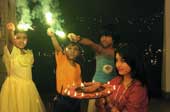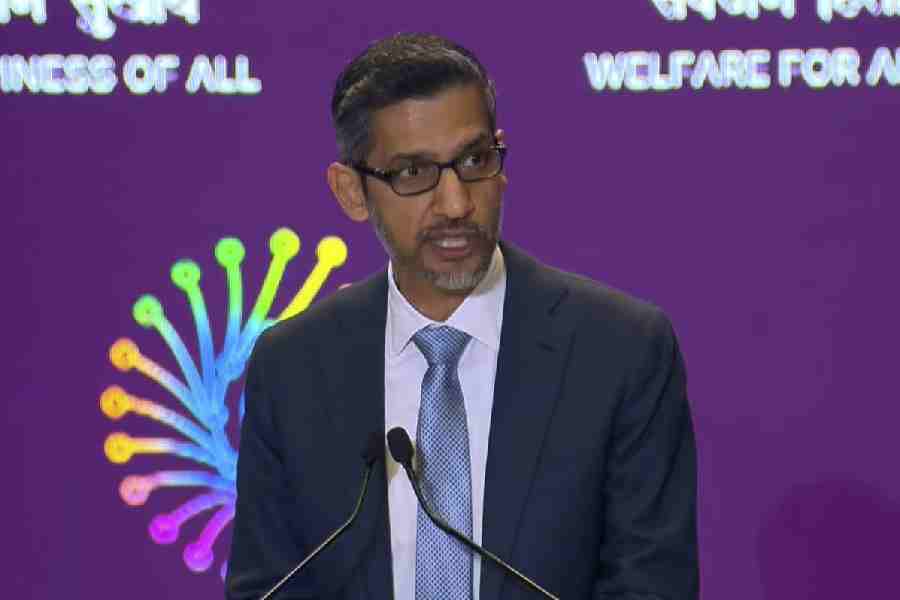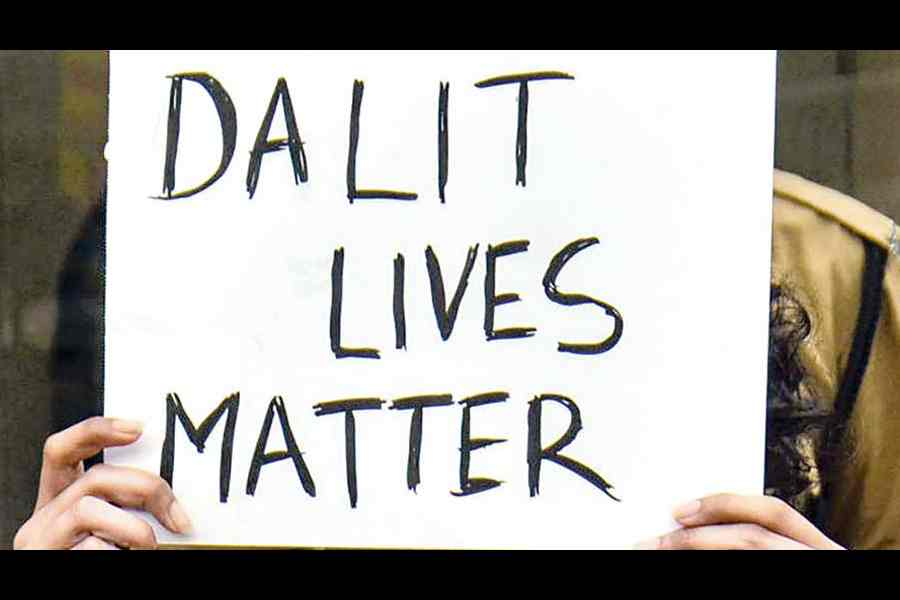 |
| Light up: The anti-cracker stir, mostly led by NGOs and schools, has now entered homes |
Alok Sen read his newspapers, and knew all about what cigarette smoking ? a habit that just wouldn?t go ? did to him. It blackened his lungs, wrinkled his skin, led to a nasty cough if he was lucky, and a dreadful cell-eating disease if he was not. But Sen continued to smoke ? till his five-year-old daughter cornered him one day. ?Baba, don?t smoke,? she said, simply. And Alok didn?t. Simply.
More and more people, like Sen, are changing their habits, mainly because of pressures from younger members of the family. For long years, parents told their children all that had to be done, and not done. These days, children tell their parents a few home-truths as well. And parents find themselves under increasing pressure to listen to them.
?When children raise health or environmental issues, we find that parents respond,? says Monika Arora, director of a Delhi non-governmental organisation, Health Related Information Dissemination Amongst Youth (HRIDAY), which has been conducting anti-tobacco drives among students. ?Children?s appeals make a difference, because you know they have no vested interests,? she says.
HRIDAY?s campaign against the use of tobacco -? spearheaded by hundreds of school children in Delhi ? has begun to bear fruit. In September, groups of school children fanned out into market areas, urging people to stub out their cigarettes in public areas, and asking restaurant owners to earmark a separate non-smoking area ? provisions of a central law that has been in effect since May this year, but is seldom being followed.
Some earlier students? movements have left their mark as well. Diwali is a case in point. Five years ago, Delhi?s air the morning after Diwali was so thick that you could cut it with a butter knife. But a students? drive against noisy and smoky fire-crackers has brought the smoke and noise levels down.
The Delhi Pollution Control Board said last year that there was a significant dip in air and noise pollution levels on Diwali, when compared with the levels in 2002. Noise pollution on Diwali night was between 69.7 decibels and 88.3 decibels ? higher than the prescribed limit of 50 decibels, but considerably lower than the 91.2 decibels recorded in 2002 and 100 decibels of 2001. Pollutants in the air ? monitored through respirable suspended particulate matter and suspended particulate matter ? were considerably lower as well. In 20 out of the 40 locations the DPCC was keeping a close watch on, there was a decreased level of air pollutants when compared with 2002.
The anti-cracker stir, mostly led by NGOs and supported by schools, has now entered homes. Manjari Gupta, an architect and a mother of two energetic sons, remembers the time, just a few years ago, when her children enjoyed bursting noisy crackers. No longer, though. ?These days, we can?t think of buying all those loud patakas we grew up on,? she says. ?My sons tell us what we should buy and not buy,? she says.
Not surprisingly, students of Calcutta are also gearing up for a less polluting Diwali. The state school education department is working on a circular to be sent to schools, highlighting the harmful effects of firecrackers.
It?s an ideology that 16-year-old Ujjainee Sharma strongly believes in. She has, for some years now, been saying no to crackers ? a demand that her parents have happily succumbed to.
And now that the student of Delhi Public School in Noida has won her own war against crackers, she is trying to stop her father from smoking. ?I am actually planning to do so ? only because she has asked me to,? says her father.
Teachers and NGO activists stress that the movements started in schools end up as little tales of success. Today?s students, most agree, are significantly more environmentally conscious than their parents ? who grew up a time when the Indian Middle Class was still largely unaware of the developments in the global environmental movement.
Seven-year-old Dia, for instance, knows of a phenomenon called noise pollution, just as Nayantara, also seven, is aware of the merits of saving. Dia asks her father to lower the volume every time she finds him listening to loud music, and Nayantara often urges her father not to splurge. ?Buy me just one book at a time,? says Nayantara, a voracious reader.
Increasingly, young students are using the powerful weapon of logic to convince their parents about environmental or health needs. Aniruddha Ghosal is 16 and has helped his father give up smoking. He started by telling his father how he was polluting not just his lungs, but the environment around him as well. And then he said: ?Let?s make a deal. You?ll smoke only if you will, some years from now, allow me to smoke.? Needless to say, his father quit smoking.
Aniruddha also makes it a point to shun plastic ? a habit that his parents are slowly picking up. When he buys bread, he leaves the plastic wrapping in the shop and brings the loaf home in a cloth bag. ?We are also trying to minimise the use of plastic,? says his mother.
The times, clearly, are a changin?. While parents continue to tell their children to pick up their clothes, clean up their closets or not stay out too late, their offspring are also teaching their parents a few important lessons. Children, as Wordsworth said -? more poetically, of course ? are, after all, the parents of the parent.










